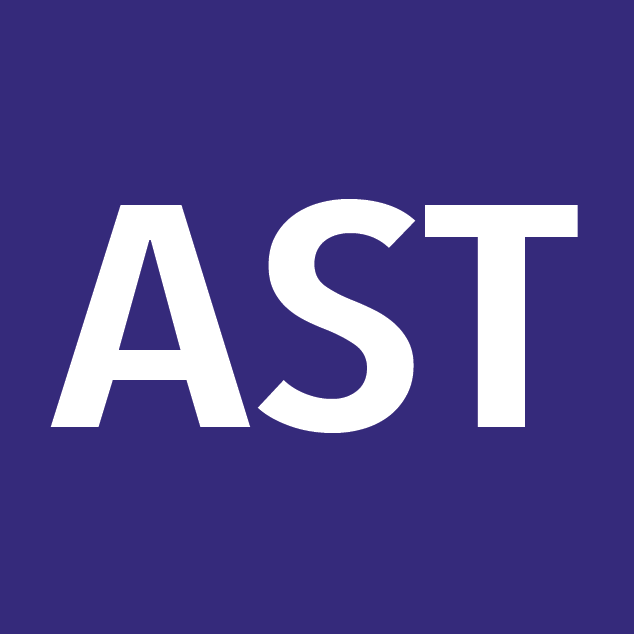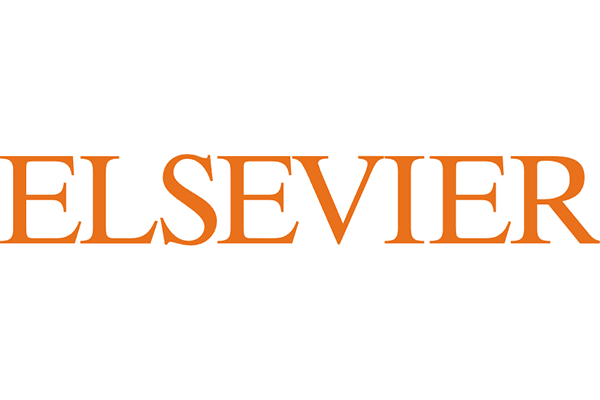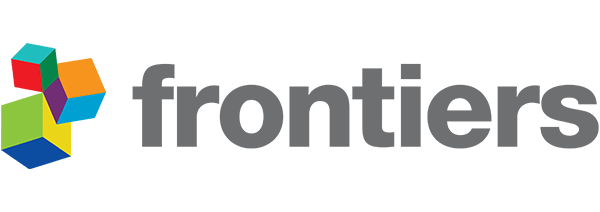May 29-30, 2024
Samarkand, Uzbekistan
International Conference on Ecosystems, Sustainable Agriculture, and Natural Resource Management
Call for papers
Register >
Conference flyer
Conference program



O‘zbekcha
Hybrid: In-Person & Virtual Event
The International Conference on Ecosystems, Sustainable Agriculture, and Natural Resource Management (ESANR 2024) is a premier virtual event taking place on April 9-10, 2024. This conference offers a dynamic platform for researchers, practitioners, policymakers, and industry experts to converge and exchange insights on the latest advancements and challenges in the field. With a comprehensive scope encompassing various facets of ecosystem management, sustainable agriculture, and natural resource stewardship, ESANR 2024 aims to foster interdisciplinary dialogue and collaboration to address pressing global issues. Attendees can expect engaging discussions and presentations on topics such as ecosystem resilience, emerging technologies for ecosystem analysis, climate-smart agriculture strategies, regenerative farming practices, and innovative approaches to enhance food security. Organized by the Consortium for the Advancement of Science and Technology in collaboration with esteemed international partners, ESANR 2024 promises to be a pivotal event shaping the future trajectory of sustainable development and environmental stewardship. Join us as we explore cutting-edge research, share best practices, and chart a path towards effective policy and governance for the sustainable management of our planet's precious ecosystems and natural resources.
About ENSAR 2024
Scope & Themes
The conference will cover a broad range of topics related to ecosystems research, agroecology, sustainable natural resources management, agricultural innovation, advances in green technology, and nature conservation, including, but not limited to:
- Advancements in Ecosystem Management for Sustainable Agriculture and Natural Resources.
- Ecosystem Resilience and Adaptation Strategies.
- Emerging Technologies for Ecosystem Analysis.
- Agroecology and Regenerative Farming Practices.
- Integrating Technology for Precision Agriculture and Resource Management.
- Sustainable Crop Production and Soil Health Management.
- Climate-Smart Agriculture: Mitigation and Adaptation Strategies.
- Enhancing Food Security through Sustainable Agriculture Innovations.
- Farmer-Centric Approaches to Sustainable Agriculture Development.
- Sustainable Livestock Farming and Rangeland Management.
- Agroforestry and Carbon Sequestration: Enhancing Ecosystem Services.
- Biodiversity Conservation Strategies in Agricultural Landscapes.
- Sustainable Extraction and Management of Natural Resources.
- Conservation and Restoration of Natural Habitats and Ecosystems.
- Policy and Governance for Effective Natural Resource Management.

A network of research institutions and educational organizations, promoting latest advances in science and technology.

AST Consortium
A classical higher educational institution, famous not only in Uzbekistan but also in many countries of the world.
Samarkand State University
Organizers, Partners, & Sponsors
The Consortium partners with a number of organizations to support the international conference and foster scientific communication and exchange between universities, research institutions, and industrial partners.
Ertan Yildirim, PhD, Professor
Chairperson, Program Committee
Atatürk University, Faculty of Agriculture, Erzurum, Turkey
Chairperson, Program Committee
Atatürk University, Faculty of Agriculture, Erzurum, Turkey

Conference Chairs
Akmal R. Akhatov, Doctor of Technical Sciences, Professor, Vice-Rector for International Cooperation
Chairperson, Organizing Committee
Samarkand State University, Samarkand, Uzbekistan
Chairperson, Organizing Committee
Samarkand State University, Samarkand, Uzbekistan

- Dr. Kanat M. Tireuov, Professor, Chairman of the Board - Rector of the S. Seifullin Kazakh Agrotechnical Research University, Astana, Kazakhstan.
- Dr. Kristina Toderich, Professor, International Platform for Dryland Research and Education, Tottori University, Tottori, Japan.
- Dr. Hakimjon A. Hushvaktov, Professor, Vice-Rector for Research and Innovations, Samarkand State University, Samarkand, Uzbekistan.
- Dr. Moreno Toselli, Associate Professor, Department of Agricultural and Food Sciences, University of Bologna, Bologna, Italy.
- Dr. Toshpulot F. Rajabov, Professor, Director of the Institute of Agrobiotechnology and Food Security, Samarkand State University, Samarkand, Uzbekistan.
- Dr. Gavhar Dushanova, Professor, Head of the Department of Biotechnology, Samarkand State University, Samarkand, Uzbekistan.
- Dr. Zafar Ismailov, Professor, Department of Biotechnology, Samarkand State University, Samarkand, Uzbekistan.
- Dr. Salikh Tashpulatov, Professor, Chairperson of the Consortium for the Advancement of Science and Technology, Tashkent, Uzbekistan.
Organizing Committee Members
- Dr. Diana Di Gioia, Department of Agricultural and Food Sciences, University of Bologna, Bologna, Italy.
- Dr. Ferenc Lantos, Plant Science and Environmental Protection Institute, University of Szeged, Szeged, Hungary.
- Dr. Haradhan Kolya, Jeonbuk National University, Jeonju, Republic of Korea.
- Dr. Salim Gasmi, University Larbi Tebessi, Tebessa, Algeria.
- Dr. Mihaela Ivanova, University of Food Technologies, Plovdiv, Bulgaria.
- Dr. Maria Momchilova, Institute of Food Preservation and Quality, Plovdiv, Bulgaria.
- Dr. Mohsen Barzegar, Tarbiat Modares University, Tehran, Iran.
- Dr. Ashabil Aygan, Kahramanmaras Sutcu Imam University, Kahramanmaras, Turkey.
- Dr. Aamir Hussain Dar, Department of Food Technology, Islamic University of Science and Technology Awantipora Kashmir, India.
Program Committee Members

Publishing Opportunities
Edited Volumes
A number of edited volumes that focus on our conference topics will be published after the conference in cooperation with Springer Nature in the following book series:
After publication, edited volumes are submitted for coverage by Scopus, Web of Science, and others.
A number of edited volumes that focus on our conference topics will be published after the conference in cooperation with Springer Nature in the following book series:
- Lecture Notes in Systems and Networks;
- Environmental Science Proceedings;
- Springer Climate;
- Advances in Science, Technology and Innovation.
After publication, edited volumes are submitted for coverage by Scopus, Web of Science, and others.
Journal Publication
In addition to the above publishing opportunities, the best papers presented at the conference will be submitted for high-impact academic journals published by Springer Nature, Wiley, Elsevier, and Frontiers. Reviewers and editors of the conference will conduct a quality peer-review process and provide highly valuable recommendations. This type of publication is available by invitation only.
In addition to the above publishing opportunities, the best papers presented at the conference will be submitted for high-impact academic journals published by Springer Nature, Wiley, Elsevier, and Frontiers. Reviewers and editors of the conference will conduct a quality peer-review process and provide highly valuable recommendations. This type of publication is available by invitation only.
Conference Proceedings
All accepted papers presented at the conference will be included in the conference proceedings, published with the IOP Publishing in the series IOP Conference Series: Earth and Environmental Science. Conference proceedings are covered by Scopus, Web of Science, Google Scholar, and others.
All accepted papers presented at the conference will be included in the conference proceedings, published with the IOP Publishing in the series IOP Conference Series: Earth and Environmental Science. Conference proceedings are covered by Scopus, Web of Science, Google Scholar, and others.
The conference provides numerous publishing opportunities for participants and invited speakers.







Conference Speakers
The conference features a vibrant list of confirmed speakers who are deeply versed in their field and represent different research areas. The participants of the conference will be able to get acquainted with recognized experts and gain a deeper understanding of the topics discussed.
Dr. Steven R. Evett

Research Soil Scientist, Acting Laboratory Director, USDA ARS Conservation & Production Research Laboratory, Bushland, TX, United States of America
Theme: Plant and Soil Sensor Based Irrigation Automation to Increase Crop Water Productivity
Dr. Steven R. Evett is a prominent figure in the field of soil and water management research. As a research soil scientist, he has made significant contributions to the scientific community through his extensive work in understanding and improving agricultural practices related to feed nutrient management, gas emissions reduction, and soil health promotion in beef and dairy cattle production systems of the Southern Great Plains. His expertise lies in dryland and irrigated crop management under limited water availability and drought conditions.
One of Dr. Evett's notable achievements includes the development of a benchmark evapotranspiration dataset, which has become instrumental in evaluating remote sensing models across the Contiguous United States (CONUS). This dataset, comprising daily and monthly post-processed data, provides researchers and stakeholders with a valuable resource for understanding the intricate relationships between climate, crop growth, and water consumption.
Additionally, Dr. Evett has contributed to the scientific literature through numerous publications and presentations. His work covers a wide range of topics, including the comparison of weighing lysimeter evapotranspiration with energy balance models, forecasting crop water stress indicators using machine learning algorithms, and characterizing evaporative losses from sprinkler irrigation systems. These publications reflect his dedication to advancing knowledge and disseminating research findings to benefit the scientific community and agricultural practitioners.
His articles appear in Computers and Electronics in Agriculture (IF 8.3), Field Crops Research (IF 5.8), Environmental Modeling & Software (IF 4.9), Journal of Integrative Agriculture (IF 4.8), Soil and Tillage Research (IF 6.5), Agronomy Journal (IF 2.1), Hydrological Processes (IF 3.7), Irrigation Science (IF 3.6), Precision Agriculture (IF 6.2), Atmospheric Measurement Techniques (IF 3.8), Journal of Arid Environments (IF 2.7), Geophysical Research Letters (IF 5.2), Agricultural Water Management (IF 6.7), among many others.
One of Dr. Evett's notable achievements includes the development of a benchmark evapotranspiration dataset, which has become instrumental in evaluating remote sensing models across the Contiguous United States (CONUS). This dataset, comprising daily and monthly post-processed data, provides researchers and stakeholders with a valuable resource for understanding the intricate relationships between climate, crop growth, and water consumption.
Additionally, Dr. Evett has contributed to the scientific literature through numerous publications and presentations. His work covers a wide range of topics, including the comparison of weighing lysimeter evapotranspiration with energy balance models, forecasting crop water stress indicators using machine learning algorithms, and characterizing evaporative losses from sprinkler irrigation systems. These publications reflect his dedication to advancing knowledge and disseminating research findings to benefit the scientific community and agricultural practitioners.
His articles appear in Computers and Electronics in Agriculture (IF 8.3), Field Crops Research (IF 5.8), Environmental Modeling & Software (IF 4.9), Journal of Integrative Agriculture (IF 4.8), Soil and Tillage Research (IF 6.5), Agronomy Journal (IF 2.1), Hydrological Processes (IF 3.7), Irrigation Science (IF 3.6), Precision Agriculture (IF 6.2), Atmospheric Measurement Techniques (IF 3.8), Journal of Arid Environments (IF 2.7), Geophysical Research Letters (IF 5.2), Agricultural Water Management (IF 6.7), among many others.
Registration, Participation, & Submission
The conference offers various registration and participation options to accommodate virtual experiences for attendees.
1. Register for conference participation with an abstract of your paper
- To register for the conference, participants are required to submit brief abstracts of up to 800 words. This can be done by registering with the AST Consortium platform. Abstracts will be reviewed and accepted on a rolling basis, and the Conference Committee will ensure that the submission topic aligns with the conference's scope.
- The abstracts must meet the formatting requirements specified in the template. Each abstract must correspond to the scope of the conference and reflect results of independent research. All abstracts must be original; all the files submitted by the authors will be checked for plagiarism. The maximum number of authors in one abstract is six.
- Once an abstract is accepted, it is mandatory that at least one of the authors present either in-person or virtually (oral session presentation or with a poster). Authors can submit multiple abstracts for review, but if more than one is accepted, each additional abstract will require an extra fee. There are no limitations on the number of abstracts being submitted by the author. However, we highly recommend to submit no more than three abstracts from one author.
- In addition, we highly recommend submitting abstracts as early as possible, as this will give the Committee ample time to review and provide feedback. There are different registration deadlines (early bird, registration, and late) with a changing amount of registration fee.
- By submitting an abstract, authors have the opportunity to present their research to a global audience, engage with peers, and receive valuable feedback. It is an excellent opportunity to showcase their work and contribute to the advancement of their field. All accepted abstracts will appear in the Conference Book of Abstracts. Once an abstract is accepted, the authors are invited to submit a full paper for publication in the conference proceedings or edited volumes by the deadline.

Participation in conferences can take various forms: oral presentation, poster presentation, or joining as a listener. One should choose an appropriate form of participation when registering.
2. Choose the form of participation
Virtual forms of participation:
Online with a session presentation: If you are unable to attend the conference in person but are scheduled to present, a session presentation online is an excellent option. This type of presentation allows you to share your research with others and answer questions from the audience, despite not being present physically. As an online presenter, you can have your paper published in the conference proceedings, edited volumes, or partner journals, with coverage by leading databases (Scopus, Web of Science, and others). The options available include prerecorded presentations, which will be published on the conference website and available to all participants, or live online presentations with a short Q&A session.
Online with a poster presentation: Another way to present your research online is through a poster presentation. This option allows you to display your research in a visual format, making it easier for others to understand and engage with. Posters are published online on the conference website. You may publish the full paper in the conference proceedings, edited volumes, or partner journals, with coverage by leading databases (Scopus, Web of Science, and others).
Online as a listener, no presentation & no publication: If you're interested in attending a conference but don't have any research to present, you can still participate as a listener. You'll be able to attend sessions, listen to presentations, and engage with other attendees, but you won't have a presentation or publication.
To ensure that participants from all over the world have wider access to the conference, there are three fully online participation options available. When registering for the conference, participants can choose the most appropriate form of participation based on their preferences and circumstances.
3. Take part in the conference
Conference Venue

This year's event will be held entirely online via Zoom, bringing together participants from across the globe in an immersive virtual experience. While we understand the value of in-person gatherings, we've curated a virtual conference that promises to deliver all the excitement, engagement, and networking opportunities you've come to expect, with some added competitive features that make this event truly unique.
Instructions for Virtual Participants:
We look forward to welcoming you to our virtual event and creating memorable experiences together, no matter where you are in the world. See you online!
Instructions for Virtual Participants:
- Register: Visit the Zoom website to download the app. Upon registration, you'll receive a confirmation email with details on how to access the virtual platform.
- Tech Check: Prior to the event, ensure you have a stable internet connection and the latest version of Zoom installed on your device. Test your audio and video settings to avoid any technical glitches during the conference.
- Accessing the Event: On the day of the event, simply log in to the virtual platform using the unique link provided in your confirmation email. You'll have access to the full agenda, speaker profiles, and interactive features to enhance your experience.
- Engage and Connect: Don't be shy! Take advantage of the virtual networking opportunities to connect with speakers, sponsors, and fellow participants. Join breakout sessions, participate in discussions, and make the most out of your virtual conference experience.
We look forward to welcoming you to our virtual event and creating memorable experiences together, no matter where you are in the world. See you online!
Conference program


4. Provide a full paper for publication
- After having your abstract submitted, reviewed, and registered for the conference, the authors are required to submit a piece of original research that is not under consideration elsewhere. The full-length papers must meet the formatting requirements specified in the 'Full paper template'. The full-length paper submissions are accepted on the rolling basis (right after the acceptance of the paper abstract and completed registration for the conference). One registered abstract implies submitting one full-length paper for publication either in the conference proceedings, edited book volumes, or academic journals.
- To ensure the originality of the papers, all incoming full papers will be checked for plagiarism. Additionally, all paper submissions will be peer-reviewed by at least two independent scholars. This process guarantees that the papers accepted for publication at the conference are of the highest quality. The proceedings editors will assist in finalizing papers for publication.
- Authors will have an opportunity to submit a revised full paper after the conference, based on the feedback received during the discussions and interactions with other participants. This is an excellent opportunity to refine and improve the research work further, as well as to present their research to a global audience.
- After conducting a peer review, the editors assign the type of publication based on the quality of the submission: conference proceedings ("Conference Paper"), edited volumes ("Book Chapter"), or academic journal ("Article"). Full papers are published within 4-12 month after being submitted to the publisher (depending on the type of publication). All published papers are sent for coverage by the leading databases (Scopus, Web of Science, and others).
Authors' guidelines


Dates & Deadlines
Registration deadlines
Full paper submission deadline
Conference dates
Publication
- Registration: March 30, 2024.
- Day 1 (video conference): April 9, 2024.
- Day 2 (poster session): April 10, 2024.
- On the rolling basis, but no later than April 24, 2024.
Participants are encouraged to submit full papers as early as possible after having their abstracts accepted and registration confirmed.
- Conference proceedings: approx. 4 month after submission to the publisher.
- Edited volumes: approx. 6 month after submission to the publisher.
- Journal issues: on the rolling basis.
Registration Fees
- Participation with a paper publication: US$150.
- Participation without paper publication: US$100.
- Listener: US$80.
What's included (participation with paper publication):
- Virtual access to conference and poster sessions.
- Program booklet & Book of Abstracts (PDF).
- One paper publication in the proceedings / edited volumes / academic journals (covered by Scopus, Web of Science). At least one paper author must present virtually.
- Proceedings copy (PDF).
- Certificate of participation.
- Conference videos and other materials.
Virtual participation
Sponsorship Opportunities
The conference attracts numerous participants from all over the world, both academic and industrial delegates, to discuss the latest research advances and share field experiences.
To request a sponsorship kit, kindly contact us:
To request a sponsorship kit, kindly contact us:
Resources for Authors & Participants
Call for papers

Conference flyer

Conference program



This section provides authors and participants with essential information regarding a manuscript preparation, terms of participation, travel conditions and much more.
Frequently Asked Questions
Registration is available on the conference website in the Registration section. Follow the instructions provided on the registration page to complete the registration process.
The deadline for submissions varies depending on the type of submission and registration date. Please refer to the conference website for detailed information on submission deadlines.
The registration fee varies depending on the type of participation and registration date. Please refer to the conference website for detailed information on registration fees.
You will receive an email notification regarding the status of your submission after the review process is complete. Please note that all submissions are reviewed on a rolling basis.
At least one author of the accepted abstract must attend the meeting to present your work and answer questions (either in-person or virtually). Only talks and posters of registered participants will be scheduled in the program. If it is difficult to attend virtually due to the difference in time zones authors may submit a recorded video presentation for the live stream although live participation is encouraged to facilitate Q&A.
The conference organizers will inform you if your presentation will be recorded. If it is being recorded, it will be available for viewing on the conference website after the conference.
Yes, there will be opportunities for networking during the conference. Please refer to the conference program for scheduled networking events.
Yes, conference proceedings will be published. Please refer to the conference website for detailed information on the publication opportunities and process.
You need to participate in-person or virtually with a full paper publication (in conference proceedings, edited volumes, or partner journals). All accepted papers will be published by the leading world publishers and submitted for coverage by the leading databases, including Scopus and Web of Science).
Yes, kindly contact the Secretariat via email <events@astconsortium.org> (or use the contact form on this website) with full details about your application so we can transfer you and you colleagues.
To participate in a poster presentation at the conference, you can register for the conference with a poster submission. The poster requirements and guidelines are available in the "Resources for Authors and Participants" section of the conference website. Once your poster submission is accepted, you will be invited to present your poster at the poster session during the conference. The posters can be displayed at the conference venue, virtually, or both, depending on the type of participation you choose. Make sure to follow the format requirements and prepare a visually engaging and informative poster that effectively presents your research.
Email: events@astconsortium.org

Contact Us
Kindly let us know if you have any questions about the conference, participation, or publication.


Cookies managing
Cookie Settings
Cookies necessary for the correct operation of the site are always enabled.
Other cookies are configurable.
Other cookies are configurable.

